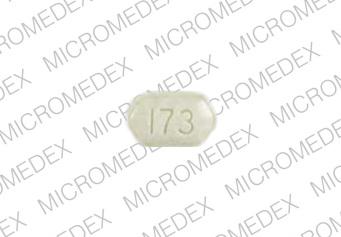Vaseretic and Alcohol/Food Interactions
There are 5 alcohol/food/lifestyle interactions with Vaseretic (enalapril / hydrochlorothiazide).
Enalapril Alcohol (Ethanol)
Moderate Drug Interaction
Although enalapril and hydroCHLOROthiazide are frequently combined together, their effects may be additive on lowering your blood pressure. You may need a dose adjustment or special tests to safely take both medications. Contact your doctor if you have a reduced heart rate, dizziness, fainting, or headaches. It is important to tell your doctor about all other medications you use, including vitamins and herbs. Do not stop using any medications without first talking to your doctor.
Enalapril Alcohol (Ethanol)
Moderate Drug Interaction
Enalapril and ethanol (alcohol) may have additive effects in lowering your blood pressure. You may experience headache, dizziness, lightheadedness, fainting, and/or changes in pulse or heart rate. These side effects are most likely to be seen at the beginning of treatment, following a dose increase, or when treatment is restarted after an interruption. Let your doctor know if you develop these symptoms and they do not go away after a few days or they become troublesome. Avoid driving or operating hazardous machinery until you know how the medications affect you, and use caution when getting up from a sitting or lying position. It is important to tell your doctor about all other medications you use, including vitamins and herbs. Do not stop using any medications without first talking to your doctor.
Hydrochlorothiazide Alcohol (Ethanol)
Moderate Drug Interaction
HydroCHLOROthiazide and ethanol (alcohol) may have additive effects in lowering your blood pressure. You may experience headache, dizziness, lightheadedness, fainting, and/or changes in pulse or heart rate. These side effects are most likely to be seen at the beginning of treatment, following a dose increase, or when treatment is restarted after an interruption. Let your doctor know if you develop these symptoms and they do not go away after a few days or they become troublesome. Avoid driving or operating hazardous machinery until you know how the medications affect you, and use caution when getting up from a sitting or lying position. It is important to tell your doctor about all other medications you use, including vitamins and herbs. Do not stop using any medications without first talking to your doctor.
Enalapril Food/Lifestyle
Moderate Food Interaction
Consumer information for this interaction is not currently available.
GENERALLY AVOID: Moderate-to-high dietary intake of potassium can cause hyperkalemia in some patients who are using angiotensin converting enzyme (ACE) inhibitors. In some cases, affected patients were using a potassium-rich salt substitute. ACE inhibitors can promote hyperkalemia through inhibition of the renin-aldosterone-angiotensin (RAA) system.
MANAGEMENT: It is recommended that patients who are taking ACE inhibitors be advised to avoid moderately high or high potassium dietary intake. Particular attention should be paid to the potassium content of salt substitutes.
Switch to professional interaction data
Hydrochlorothiazide High Cholesterol (Hyperlipoproteinemia, Hypertriglyceridemia, Sitosterolemia)
Moderate Potential Hazard, Moderate plausibility
thiazides - hyperlipidemia
Thiazide diuretics may increase serum triglyceride and cholesterol levels, primarily LDL and VLDL. Whether these effects are dose-related and sustained during chronic therapy are unknown. Patients with preexisting hyperlipidemia may require closer monitoring during thiazide therapy, and adjustments made accordingly in their lipid-lowering regimen
Switch to professional interaction data
Vaseretic drug interactions
There are 615 drug interactions with Vaseretic (enalapril / hydrochlorothiazide).
Vaseretic disease interactions
There are 18 disease interactions with Vaseretic (enalapril / hydrochlorothiazide) which include:
- angioedema
- bone marrow suppression
- hemodialysis
- hyperkalemia
- hypotension
- anuria
- electrolyte losses
- liver disease
- lupus erythematosus
- renal function disorders
- liver disease
- renal dysfunction
- asthma
- diabetes
- hyperlipidemia
- hyperparathyroidism
- hyperuricemia
- thyroid function tests
More about Vaseretic (enalapril / hydrochlorothiazide)
- Vaseretic consumer information
- Check interactions
- Compare alternatives
- Pricing & coupons
- Drug images
- Side effects
- Dosage information
- During pregnancy
- Generic availability
- Drug class: ACE inhibitors with thiazides
- En español
Related treatment guides
Drug Interaction Classification
| Highly clinically significant. Avoid combinations; the risk of the interaction outweighs the benefit. | |
| Moderately clinically significant. Usually avoid combinations; use it only under special circumstances. | |
| Minimally clinically significant. Minimize risk; assess risk and consider an alternative drug, take steps to circumvent the interaction risk and/or institute a monitoring plan. | |
| No interaction information available. |
See also:
Further information
Always consult your healthcare provider to ensure the information displayed on this page applies to your personal circumstances.


